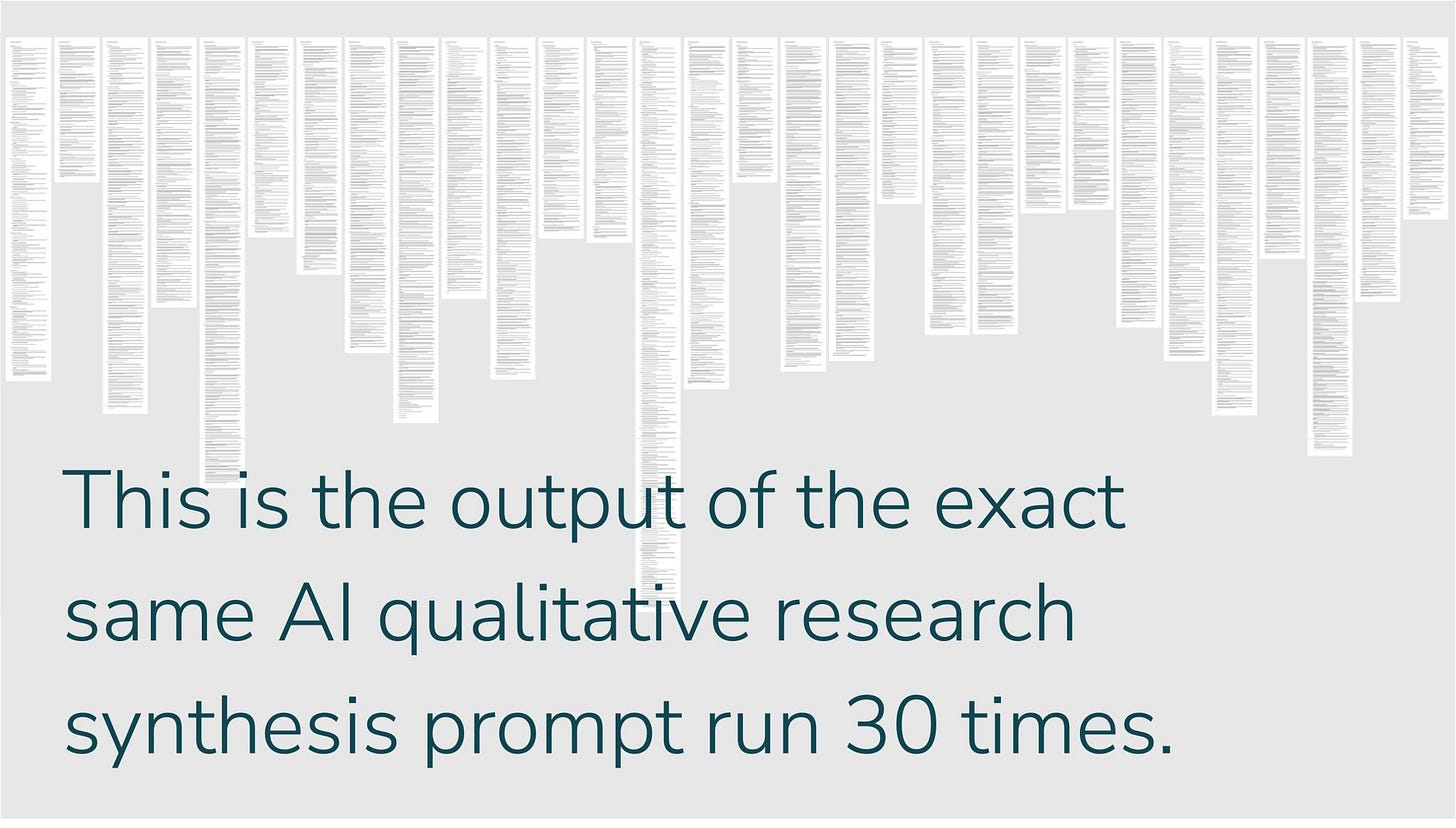Beyond the AI Hype: Augmentation Over Replacement
AI's true potential lies not in replacing humans but in augmenting our capabilities — particularly in transforming how we approach data management in digital transformation.
Fascinating results. Massive inconsistencies and serious errors throughout the generated content.
Llewyn Paine organized a workshop where 31 researchers tested AI for user research synthesis using the exact same prompt and data; she shared her experience in this post on LinkedIn.
The findings revealed important limitations of AI in qualitative synthesis research:
LLMs produced highly inconsistent outputs - the number of themes identified ranged from 5 to 18 (median ~10.5) despite using identical inputs.
While AI-generated themes generally aligned with human-generated ones, this raised questions about whether matching human themes is even the right evaluation metric.
Most critically, every single participant found examples where the AI misquoted or completely fabricated supporting evidence. One researcher noted that validating the AI output ultimately required more work than doing the analysis manually.
The main conclusion is that AI has a place in research but is currently overhyped for analysis tasks. The author emphasizes the importance of systematic evaluation of AI's strengths and weaknesses in research contexts rather than relying on anecdotal evidence. Researchers should scrutinize AI outputs carefully and can conduct their own controlled testing to understand its limitations, rather than blindly trusting commercial tools based on limited samples.
The Real AI Revolution in Business Transformation
This reinforces what many of us working in the trenches of digital transformation already know: AI should augment human capabilities, not replace them.
The current AI hype cycle has created an excessive focus on replacement rather than enhancement. We're obsessing over whether AI can replace people and jobs while missing the more profound shift happening in how we approach digital transformation itself.
Where AI truly shines is in preprocessing and data management – traditionally the most painful, expensive, and time-consuming part of any digital transformation.
Consider this: Instead of running massive master data management projects ahead of systems implementation (which often delay timelines and balloon budgets), we can now deploy machine learning capabilities to:
Identify and fix inconsistencies in poorly formatted data in the course of regular operations, maybe ahead of starting a transformation program, not as a separate special initiative,
Allow data quality to evolve and improve over time rather than requiring perfection upfront and being locked into preliminary preparations for too long before actually starting the journey,
Handle unstructured information or formats like images containing valuable data that previously required manual interventio
This is the true game-changer: AI as the way to maximise often scarce human capabilities, not as their complete replacement. We may currently not be aiming for the right balance between augmentation and replacement, between enhancement and mere automation.
It is also an opportunity to rethink the technical pre-requisites of digital transformation (note sure about the impact on cultural pre-requisites, even though this class of tech can help change mindsets).
Rethinking Digital Transformation Prerequisites
As organizations implement AI capabilities more appropriately, motivated by value instead of FOMO and blind mimicry, we'll witness fundamental changes in transformation approaches. The rigid waterfall sequence of "perfect your data before you can transform" is giving way to more agile, iterative approaches where systems and data quality can improve together. Within limits of course, because we will still need the basics to be sound and the overall approach to be disciplined. In fact more disciplined than with the rigid waterfall approached, as is the case with agile methods for development.
This shift doesn't eliminate the need for human expertise – it amplifies it. The strategic thinking, contextual understanding, and ethical oversight that humans provide become even more valuable when paired with AI's data processing capabilities.


